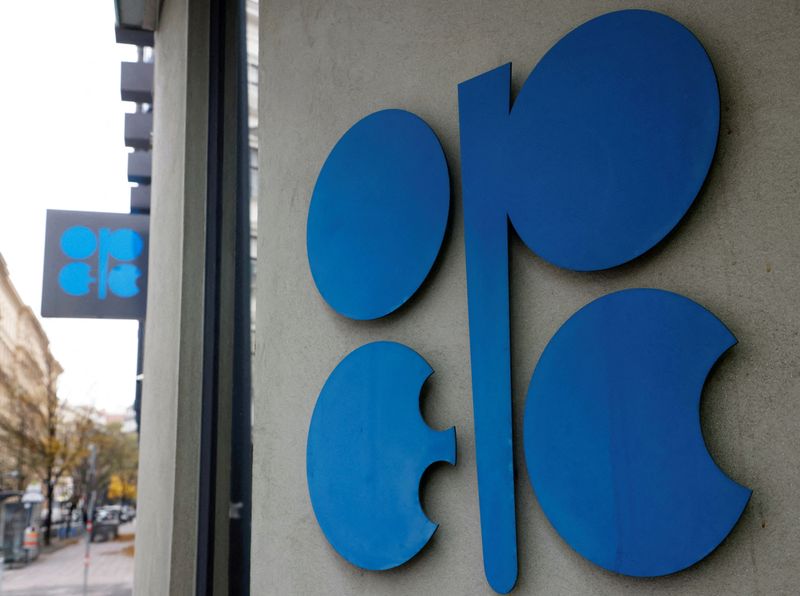By Alex Lawler
LONDON (Reuters) – Global oil prices steadied on Tuesday as the prospect of OPEC+ maintaining oil supply curbs at its June 2 meeting and hopes of strong U.S. summer fuel demand balanced concern about higher-for-longer U.S. interest rates.
On Monday, oil prices rose more than 1% in muted trade owing to public holidays in Britain and the United States, with hopes of a demand boost from the start of the U.S. summer driving and vacation season providing support.
The July contract for , the global benchmark, rose 38 cents, or 0.5%, to $83.48 a barrel by 1327 GMT. U.S. West Texas Intermediate (WTI) crude was at $79.15, up $1.43, or 1.8%, from Friday’s close, having traded through a U.S. holiday to mark Memorial Day without a settlement.
“Oil has been in a recovery mode lately, perhaps driven by expectations of strong fuel demand due to the start of the summer driving and vacation season,” said Charalampos Pissouros, analyst at broker XM.
Worries over U.S. interest rates remaining elevated for a longer period contributed to a weekly loss for crude last week. Higher rates boost the cost of borrowing, which can dampen economic activity and demand for oil.
“Despite the indisputably brighter mood seen in the last two days, interest rate concerns will most plausibly act as a (brake) on further attempts to send oil prices meaningfully higher in the immediate future,” said Tamas Varga of broker PVM.
Nonetheless, despite the general view that high interest rates could result in softer oil demand growth, “real-time mobility data indicates oil demand growth is still broadly healthy”, UBS analyst Giovanni Staunovo wrote in a client note.
On the air travel front, U.S. seat numbers on domestic flights for May rose by 5% month on month and almost 6% year on year to slightly above 90 million, data from flight analytics company OAG showed, surpassing 2019 levels.

Coming up is the online meeting of OPEC+ oil producers on Sunday, where traders and analysts are expecting 2.2 million barrels per day of voluntary production cuts to stay in place.
“It is a fair assumption that no changes in production levels will be forthcoming,” PVM’s Varga said.

